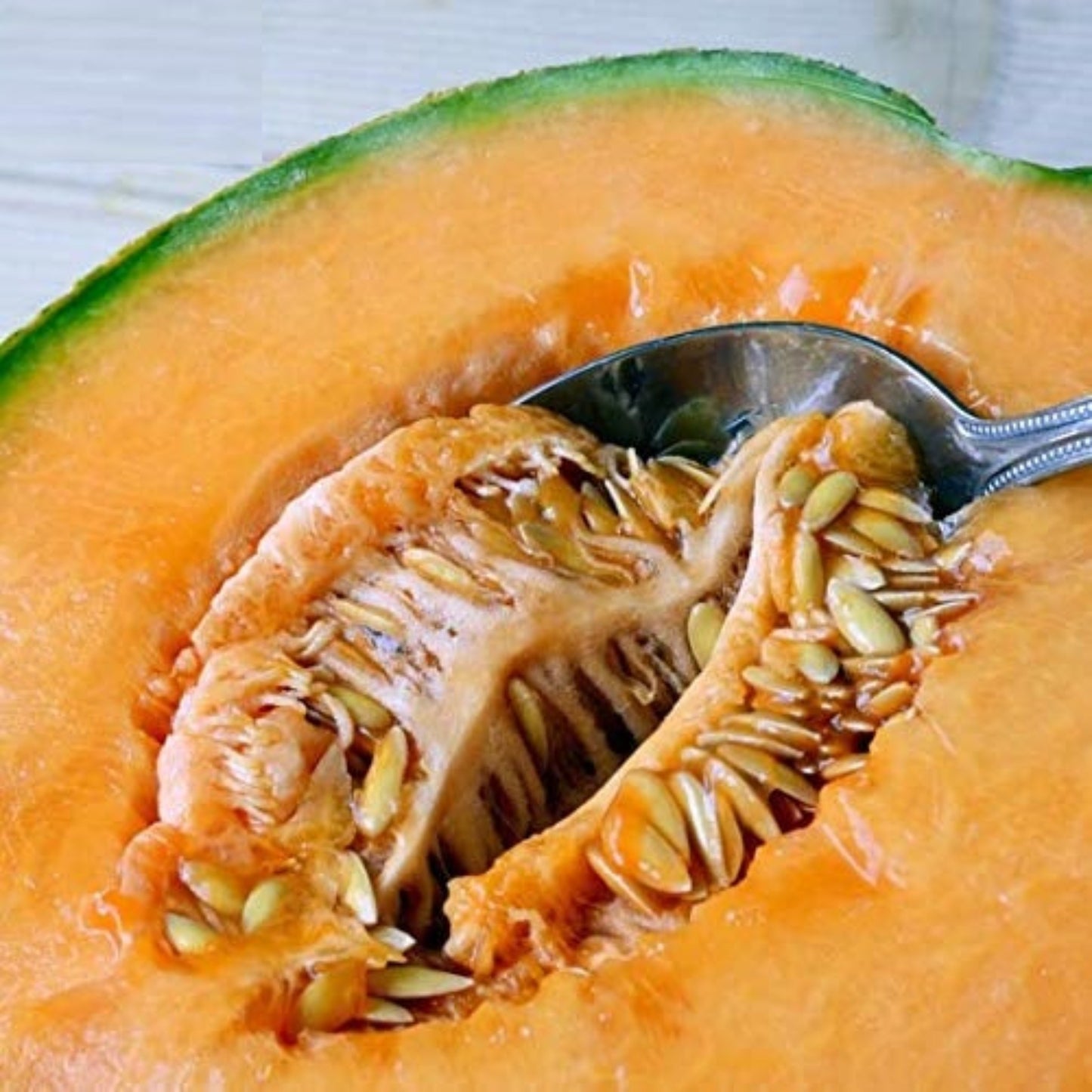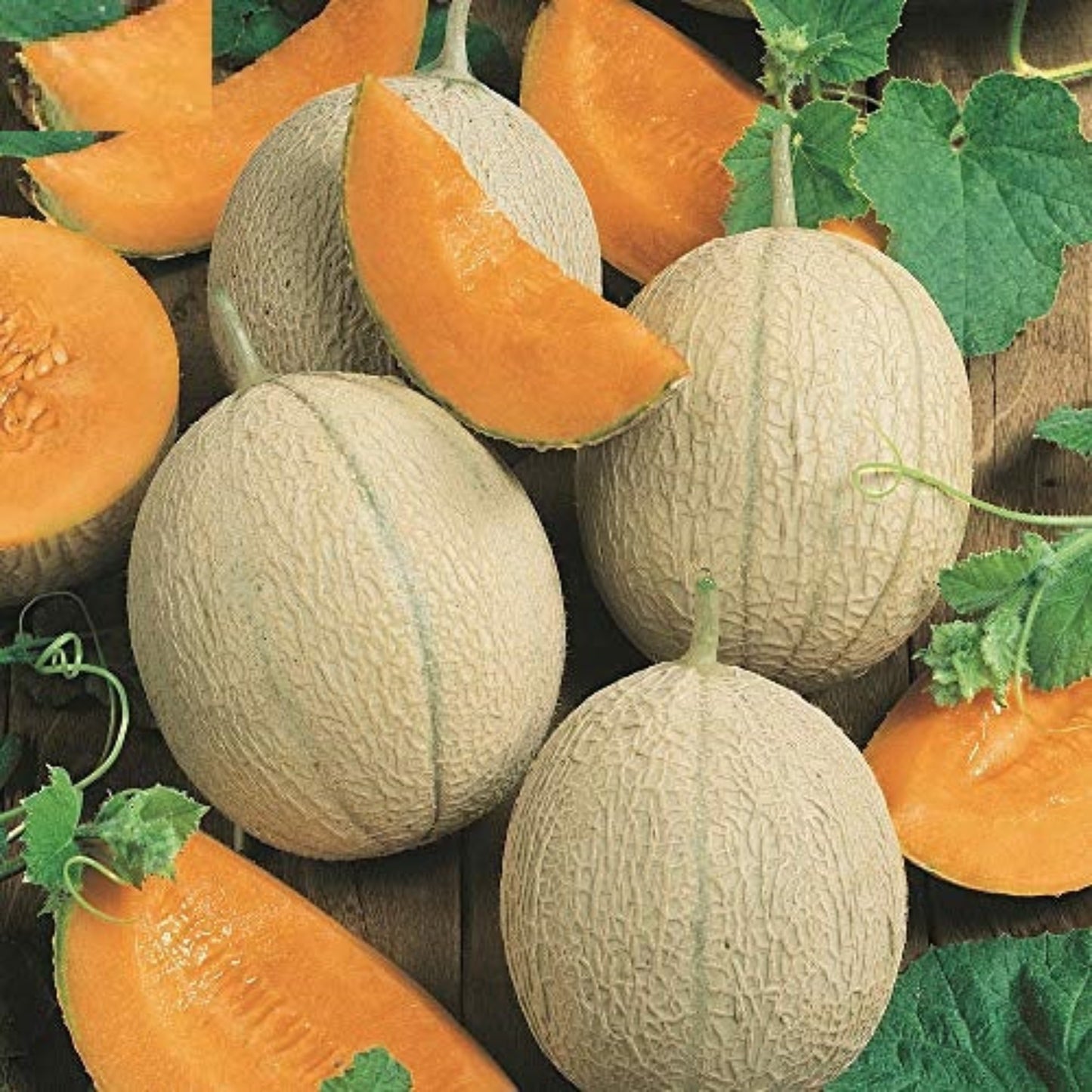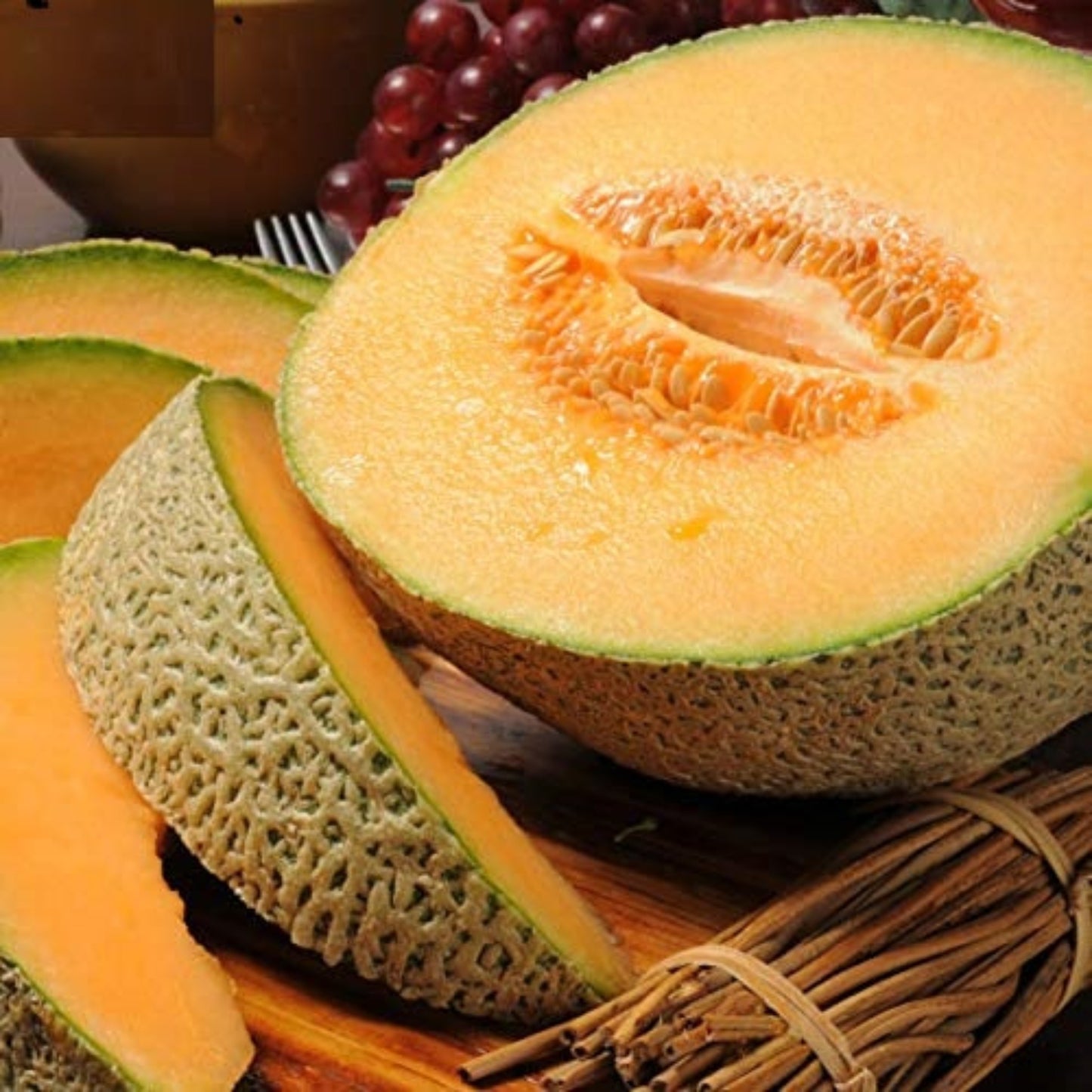JNB Seed
Hearts of Gold Cantaloupe Seeds
Hearts of Gold Cantaloupe Seeds
Couldn't load pickup availability
Survival Garden Seeds Hearts of Gold Melon, also known as Cantaloupe, are exceptionally sweet and delicious fruits that will bring joy to any gardener. Plant them in your home vegetable garden to enjoy their succulent and refreshing flavor.
Sweet and Juicy - Hearts of Gold cantaloupes typically weigh 1 to 1.4 kilograms. They emit a wonderfully sweet aroma and have an irresistibly delicious flavor.
Directly from the Garden - As these melons ripen in the warmth of the summer sun, the texture of the netting on their surface becomes more pronounced, indicating their readiness for harvest. They thrive when grown outdoors in raised beds or directly in the garden soil.
Productive Vines - The robust and blight-resistant vines of this melon variety yield generous quantities of melons weighing approximately 2 kilograms each. Hearts of Gold melons boast thick, orange-colored flesh that is packed with delectable flavor. It takes about 80 days for these melons to reach maturity.
Historical Significance - In the 1930s, Hearts of Gold emerged as the most widely cultivated melon variety in the Midwest market. Originally developed by Roland Morrill of Benton Harbor, Michigan, this melon was trademarked in 1914, highlighting its longstanding legacy and reputation for excellence.
Share
How To Grow
How To Grow
Sowing: Melons should not be planted until the soil temperature reaches 21-27 degrees Celsius, as they thrive in warm conditions. Begin by starting the plants indoors only 2-4 weeks before transplanting, as larger plants may struggle to adjust. Plant several Hearts of Gold melon seeds 1.25 centimeters deep in each peat pot, and maintain a temperature of 24 degrees Celsius until germination occurs. Once germinated, thin to the strongest plant in each pot by removing the others. Gradually acclimate the plants to outdoor temperatures by exposing them to the outdoors during the day, then transplant them to hills spaced 100-200 centimeters apart with 2-3 plants per hill. For companion planting benefits, consider planting melons near corn, but avoid planting them near potatoes.
Growing: In cooler climates, melons may benefit from the use of black plastic to warm the soil; mulching also helps to retain necessary moisture, control weeds, and keep the melons clean. Adequate moisture is particularly important as the vines begin to develop. After midsummer, remove blossoms and smaller fruits to direct energy to the larger fruits; smaller fruits may not ripen before frost and are not significant losses. Hearts of Gold melons are especially resistant to blight.
Harvesting
Harvesting
As the melon ripens, it will develop a slightly golden color and emit a fragrant aroma; the stem should detach easily, and the blossom end should feel slightly soft. The melon can be stored for several weeks in a cool location. Hearts of Gold vines are highly productive, yielding 5-7 melons per plant.
Seed Saving
Seed Saving
When saving seeds from melons, remember that they may cross-pollinate with other melon varieties but not with watermelons, cucumbers, or squash. Hearts of Gold melon seeds mature when the fruit is ripe; cut open the fruit and place the pulp containing the seeds into a bowl. Use your fingers to separate the seeds from the pulpy fibers. Add enough water so that the pulp and hollow seeds float; remove the floating material, leaving behind the good seeds at the bottom of the bowl. Rinse the seeds thoroughly, then spread them out to dry completely. Store Hearts of Gold melon seeds in a cool, dry place for up to five years.
Extra Facts
Extra Facts
Planting Methods: Indoor, Outdoor
Blooming Season: Mid to Late Summer
Planting Season: Late Spring to Early Summer
Latin Name/USDA Zones Cucumis melo var. cantalupensis/ 4, 5, 6, 7, 8, 9, 10, 11
Sunlight Required/ Height: Full Sun/ 30-45 cm
Shelf Life After Test Date: The shelf life of Hearts of Gold Cantaloupe seeds after the test date is approximately 2-3 years when stored under proper conditions. To ensure optimal viability, store the seeds in a cool, dry place, away from direct sunlight and moisture. Regularly check and replace older seeds to maintain high germination rates and enhance the success of your cultivation. It's recommended to adhere to the indicated shelf life guidelines for the best results in seed germination and healthy plant development.
Can I Grow Melon Seed Sprouts Yes, you can grow melon seed sprouts! Soak melon seeds overnight, then place them on a damp cloth in a warm spot. Keep them moist and watch for tiny sprouts. Once sprouted, transfer to soil or continue growing as sprouts for a nutritious addition to salads and dishes. Enjoy the fresh and crunchy taste of melon sprouts in your culinary creations!
Seed Type: Open-Pollinated, Heirloom
Soil Type: Loam Soil










